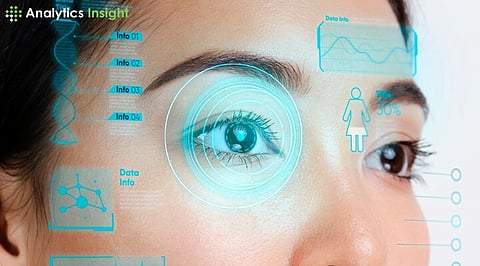

At the Mobile World Congress in Shanghai, Honor debuts AI eye protection to ensure vision health by simulating defocus glasses on smart devices—the latest action taken to educate the growing concern regarding myopia issues caused by prolonged screen time.
Knowing the issues that occurred with nearsightedness from too much screen time, Honor launched AI Defocus Eye Protection. Tech deploys AI to replicate what defocus glasses do—right within a smartphone's display. Defocus glasses blurred a user's peripheral vision to maintain clear central vision, all to slow down the progression of nearsightedness.
It claims that Honor's AI Defocus Eye Protection technology helps reduce transient myopia, which means nearsightedness due to focusing vision on objects at short distances for a prolonged period. According to the company, internal tests resulted in an average transient myopia reduction of 13 degrees with this feature on after reading for just 25 minutes. Some users even went as far as a 75-degree reduction.
This is a commitment by Honor towards ensuring the well-being of users in this ever-digitizing world. With its AI Defocus Eye Protection, Honor provides users of any age with easy and potentially vision-salvaging solutions.
Besides AI Defocus Eye Protection, Honor has also launched AI Deepfake Detection. Also designed for security, this feature addresses the rising problem of deepfakes—deep-learning-manipulated videos or audio clips intended to mislead viewers.
Besides AI Defocus Eye Protection, Honor has also launched AI Deepfake Detection. Also designed for security, this feature addresses the rising problem of deepfakes—deep-learning-manipulated videos or audio clips intended to mislead viewers.
Honor's AI Deepfake Detection works directly on the device, benchmarking such information frame by frame, including eye contact, lighting in both frames, picture resolution clarity, and video play to find inconsistencies.
Through minute flaws especially ones that are many times invisible to the naked eye, AI Deepfake Detection will be able to warn the user within three seconds in case of a possible deepfake. This will save him/her from scams and misinformation.
The launch of both AI Defocus Eye Protection and AI Deepfake Detection reflects Honor's commitment to the creation of the most advanced AI solutions for solving actual problems. Honor is introducing AI eye protection against a surging health problem to users and AI Deepfake Detection to empower them in the use of a digital landscape. These are innovations that go on to cement Honor as a front-runner in responsible and user-centric AI development.
A few key differentiators give Honor's MWC Shanghai debut of AI Eye Protection and Deepfake Detection a fighting chance at standing out against bigger brands in the market.
1. It runs on-device AI: In contrast to many solutions that are reliant on cloud processing—but system response times will be faster, and privacy augmented.
2. Consumer Trends in Health and Safety: Besides education, other consumer trends through which the brand is looking to target its launch and subsequent marketing are health and safety. In this regard, AI Defocus Eye Protection works to solve health problems while Deepfake Detection may provide a solution for security.
3. Solution: By simulating defocus glasses using AI, the company charms customers looking to apply breakthrough technologies in their everyday lives.
4. Deep Research: The company goes out of its way to prove that it offers the solution by quoting a proven reduction of Transient Myopia by an average of 13° amongst users of Honor's AI Defocus Eye Protection tech after reading for 25 minutes.
